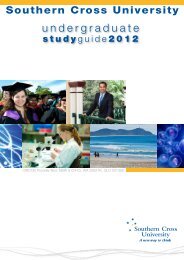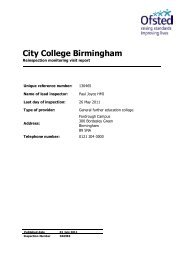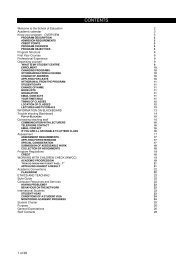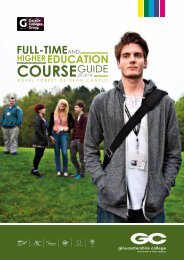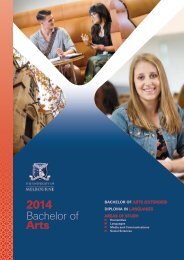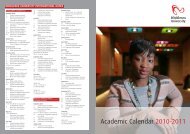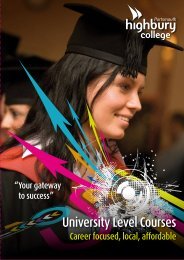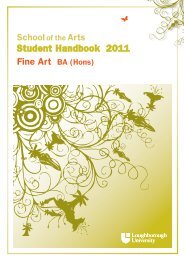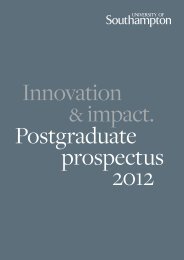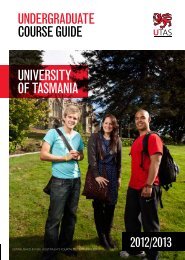2011 Fall Festival Highlights CMU Launches School of Business ...
2011 Fall Festival Highlights CMU Launches School of Business ...
2011 Fall Festival Highlights CMU Launches School of Business ...
You also want an ePaper? Increase the reach of your titles
YUMPU automatically turns print PDFs into web optimized ePapers that Google loves.
Students Learn through Thinking and Doing<br />
By Carla Lowe<br />
<strong>CMU</strong> has long recognized that<br />
education involves more than just<br />
learning in the classroom; it involves<br />
the whole person – mind, heart, soul,<br />
and hands – and includes practical<br />
experience. One <strong>of</strong> <strong>CMU</strong>’s four core<br />
commitments as part <strong>of</strong> its mission<br />
and vision is “Learning through thinking<br />
and doing.” To help carry out this<br />
commitment, <strong>CMU</strong> requires a supervised,<br />
hands-on practicum component<br />
for all academic degree programs.<br />
“Learning in a practicum happens by<br />
experiencing new things, doing new<br />
things, and reflecting on the learning<br />
that comes through that,” says Sheila<br />
Klassen-Wiebe, <strong>CMU</strong> Practicum<br />
Coordinator.<br />
Students must take six credit hours<br />
<strong>of</strong> practicum by either completing 60<br />
hours over two semesters or enrolling<br />
in an intensive practicum, which<br />
involves immersion for a concentrated<br />
time (for a minimum <strong>of</strong> 12 weeks) in<br />
an experience-based setting.<br />
“The intensive practicum allows<br />
students to spend significantly more<br />
time at a practicum placement, in<br />
many cases being immersed in a different<br />
country and culture,” says Werner<br />
Kliewer, Director <strong>of</strong> Practica. “This<br />
option is also a vehicle for doing practica<br />
away from the city – meaning that<br />
<strong>CMU</strong> education happens in ‘satellite<br />
mini-campuses’ all over the world.”<br />
Practicum placements are discussed<br />
and arranged in consultation with<br />
Megan Klassen-Wiebe looks in on the chicken coop at Cedar Lane Farm.<br />
Kliewer and Klassen-Wiebe to suit<br />
both the student and practicum host.<br />
While some students come with clear<br />
ideas, others need more guidance.<br />
Practicum assignments do not<br />
necessarily need to relate to the major,<br />
although some majors, like Communications<br />
and International Development<br />
Studies, require it. In fact, Klassen-<br />
Wiebe says this is one <strong>of</strong> the distinctive<br />
features <strong>of</strong> <strong>CMU</strong>’s practicum program.<br />
“Other academic institutions have<br />
practica, but they are usually linked to<br />
a particular degree and specific career,”<br />
she explains.“But our practica are not<br />
necessarily so closely linked to a particular<br />
program <strong>of</strong> studies. It’s not just<br />
about putting into practice the theory<br />
you learn in a classroom in preparation<br />
for a career, but a recognition that<br />
learning by doing is, in itself, a valid<br />
and important way to learn.”<br />
Whether or not students choose<br />
a practicum related to their major,<br />
there is a wide variety <strong>of</strong> placements<br />
available. Practica have taken <strong>CMU</strong><br />
students across Canada and around<br />
the world in many diverse settings,<br />
including schools, hospitals, churches,<br />
banks, radio stations, newspaper <strong>of</strong>fices,<br />
music and art programs, legal<br />
programs, farms, food banks, social<br />
services, personal care homes, community<br />
centres, orphanages, refugee/<br />
2 <strong>Fall</strong> <strong>2011</strong>




